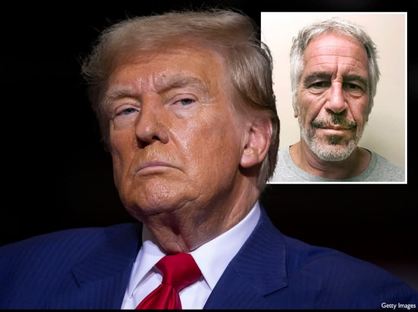
As renewed scrutiny swirls around the legacy of Jeffrey Epstein and the powerful figures once within his orbit, a recent investigative report by The Washington Post has added a clarifying note to the political cacophony: there is “no public evidence of any wrongdoing on [President Donald] Trump’s part.”
The statement, buried within a broader analysis of Epstein’s connections to high-profile individuals, comes amid a resurgence of public interest following the release of newly unsealed court documents and a forthcoming documentary series. The documents, which detail years of legal proceedings and testimonies, have reignited debates over accountability, transparency, and the influence of wealth and power in shielding individuals from legal consequences.
Trump, who had acknowledged a past social acquaintance with Epstein, has long denied any involvement in the disgraced financier’s criminal activities. The Post report reiterates that, despite speculation and political rhetoric, no formal allegations or public evidence have implicated the former president in Epstein’s crimes.
Political Reactions and Media Spin
The report has prompted a flurry of responses across the political spectrum. Supporters of Trump have seized on the finding as vindication, while critics argue that the absence of public evidence does not preclude deeper investigation.
“This is a reminder that speculation should never substitute for facts,” said constitutional law scholar Dr. Elaine Ramirez. “In high-profile cases like this, the public deserves clarity—but also caution in drawing conclusions.”
Meanwhile, social media platforms have seen a spike in conspiracy theories and partisan commentary, underscoring the enduring volatility of Epstein’s legacy in American political discourse.
A Broader Reckoning
The renewed attention to Epstein’s network has also reignited calls for broader accountability. Advocates for survivors of trafficking and abuse stress that the focus should remain on justice and systemic reform, rather than political point-scoring.
“Every time this story resurfaces, it’s an opportunity to ask why so many powerful people escaped scrutiny,” said activist Mariah Chen, founder of the nonprofit Justice Unbound. “We need to ensure that survivors are heard and that the systems enabling abuse are dismantled.”
As investigations continue and public interest remains high, the Washington Post’s report serves as a reminder of the importance of evidence-based journalism in navigating politically charged narratives.


Add comment
Comments